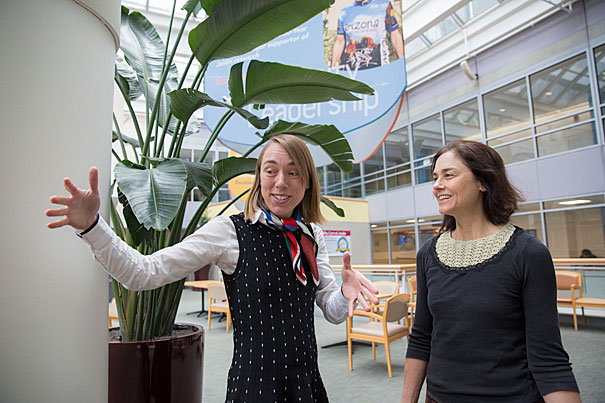Health
-
Lin Test
text with link. This is a quiz. Some text Name Name Quo modo autem philosophus loquitur? Tecum optime, deinde etiam cum mediocri amico. Invidiosum nomen est, infame, suspectum. Name Name…
-

Gender-affirming care is rare, study says
Fewer than 1 in 1,000 transgender youth receive hormones or puberty blockers

-

Nature offers novel approach to oral wound care
Slug’s sticky mucus inspiration behind adhesive hydrogel that can seal wounds in wet environment

-

Time for a rethink of colonoscopy guidelines?
Change informed by new findings would help specialists focus on those most at risk, researcher says

-

Should pharmacists be moral gatekeepers?
‘The problem is not opioids,’ says author of ‘Policing Patients’ — it’s overdose, pain
-

The deadly habit we can’t quite kick
Actions by tobacco companies worry researcher even amid ‘dramatic decrease’ in smoking among young Americans

-
Making eight legs look like six
Using high-speed cameras, Harvard researchers have shown that ant-mimicking jumping spiders don’t walk on six legs in an attempt to appear more ant-like, but instead walk with all eight and take tiny, 100-millisecond pauses to lift their front legs to make them resemble ant antennae.
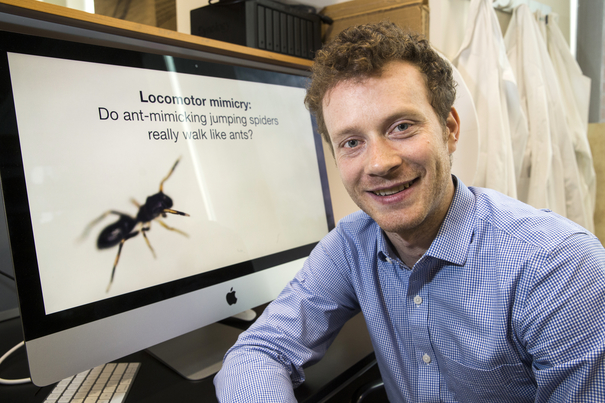
-
Making sense of survival
A Harvard study suggests a process known as synergistic epistasis enables humans to survive with an unusually high mutation rate.
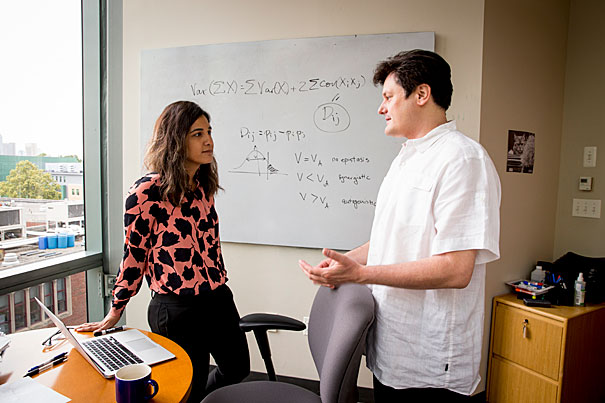
-
Assumptions of how antibiotics work may be incorrect
Researchers have discovered that bacteria respond to antibiotics very differently — exactly opposite, in fact — inside the body than they do on a petri dish.
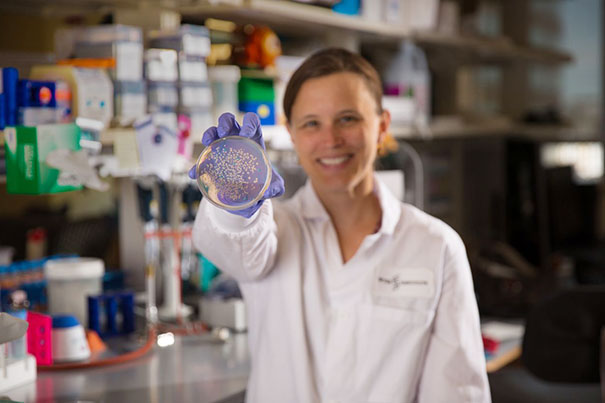
-
Role of gut bacteria in averting Type 1 diabetes
Study finds guardian gene that protects against Type 1 diabetes and other autoimmune diseases exerts its pancreas-shielding effects by altering the gut microbiota.
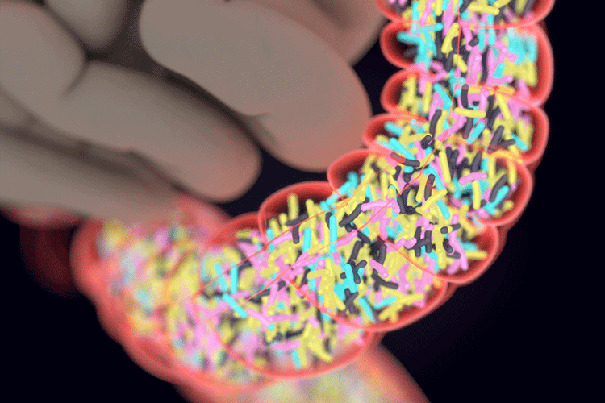
-
Making the most of a dead lizard in the snow
The extreme winter of 2013–2014 created conditions for a Harvard grad student to expand his work on green anole lizards into study of natural selection in action.
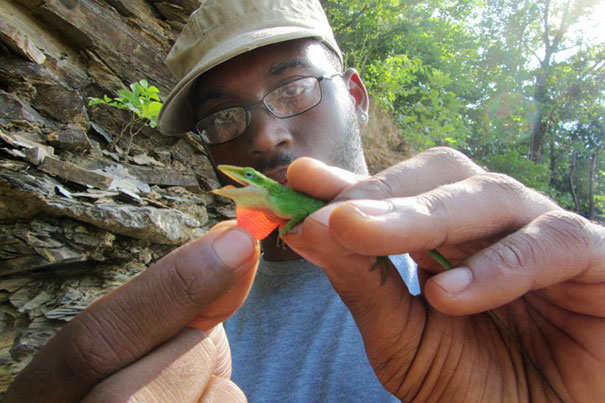
-
Mimicking birdsongs
After discovering that the complexity inherent in birdsongs results from a controllable instability in the organ used to create them, researchers at the Harvard Paulson School have developed a mimicking device.

-
Inflammation reduction cuts risk of heart attack, stroke
Brigham and Women’s Hospital’s clinical trial confirms its “inflammatory hypothesis” — reducing inflammation cuts the risk of future cardiovascular events.

-
Brain may be far more flexible than thought
New research from Harvard Medical School casts doubt on the prevailing model of memory formation, suggesting that the brain may be far more flexible.

-
Cancer alarm at the firehouse
Harvard researchers have teamed with local departments to examine cancer hazards contained in firehouse life.

-
Bad knees through the ages
A new Harvard study is the first to definitively show that the prevalence of knee osteoarthritis has dramatically increased in recent decades.
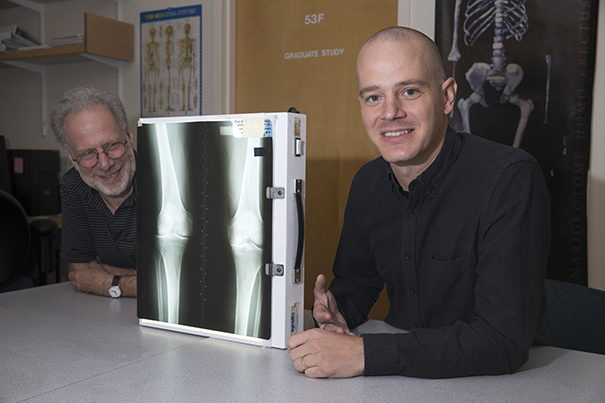
-
Seeing promise, and limits, in embryo edit
The disease-targeting embryo edit at Oregon Health & Science University signals a path for “those rare situations where the genes really are life-threatening,” says Harvard bioethicist Robert Truog.
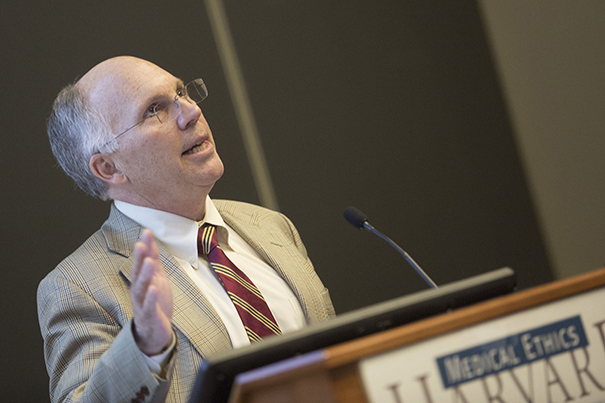
-
Buried in health care imbroglio, trillion-dollar questions
After the Senate’s failure to reform Obamacare, Harvard economist David Cutler assesses what occurred and what the future might hold.

-
Digitization uncovers pre-WWII fossil loan
Digitization of Harvard’s fossil insect collection produced a surprising twist: The return to Germany of hundreds of Eocene insects frozen in amber.
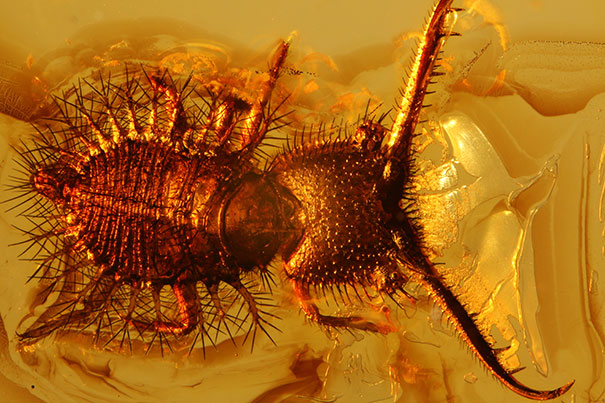
-
First draft of a genome-wide cancer ‘dependency map’
Researchers have identified more than 760 genes upon which cancer cells of multiple types are strongly dependent for their growth and survival.
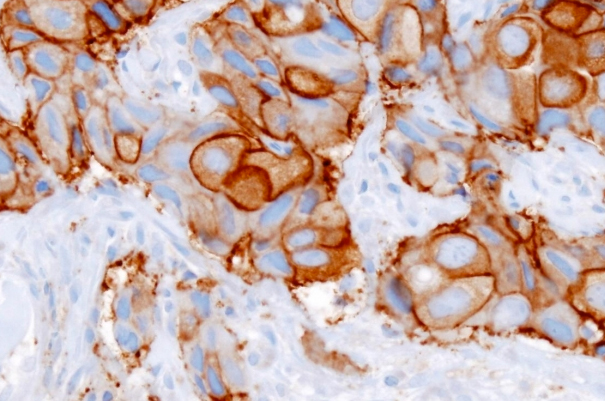
-
When brains overvalue immediate rewards
Study finds psychopaths aren’t inhuman, but have a particular kind of brain wiring dysfunction.

-
New insight on height, arthritis
New findings point to a surprising link between a genetic variant that favors shortness and an increased risk of osteoarthritis.
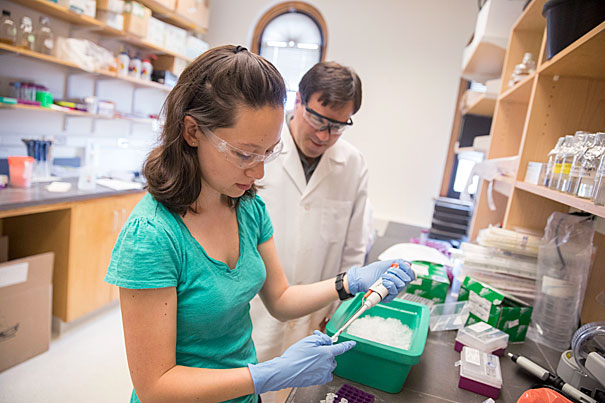
-
SEAL-tested, NASA-approved
Jonny Kim, a Harvard Medical School graduate and former Navy SEAL, has been selected to join NASA’s next astronaut class.
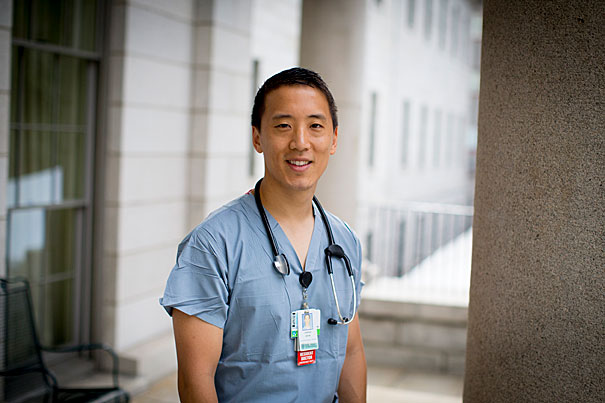
-
Finding signs of life when it matters most
An MGH study has found that the use of fMRI and EEG may provide early detection of consciousness in patients with severe traumatic brain injury.
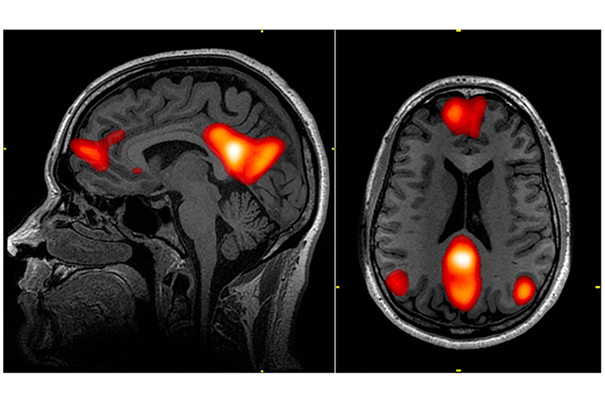
-
Making cancer vulnerable to immune attack
CRISPR-Cas9 genome editing technology revealed a promising new class of cancer immunotherapy.
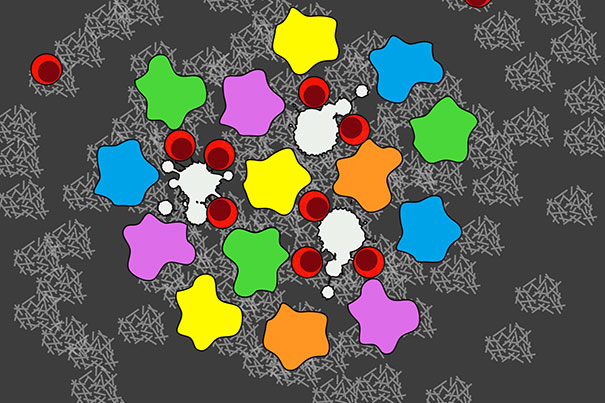
-
Older, heavier, more at risk
A new study shows weight gain during young and middle adulthood may increase risk of chronic diseases and premature death, and decrease the likelihood of achieving healthy aging.

-
Understanding how the intestine replaces and repairs itself
When working stem cells within the intestine are depleted, some types of mature cells can transform themselves into stem cells, replenishing the population.
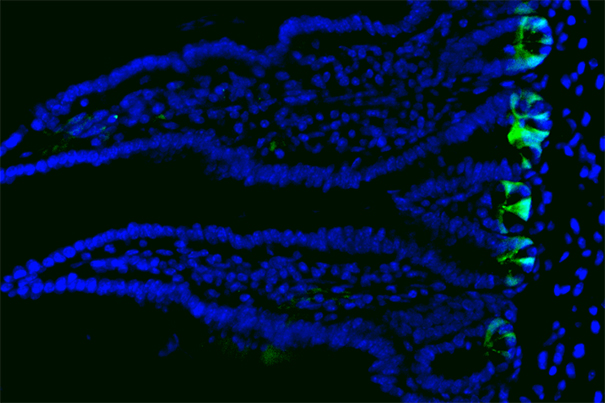
-
New approach may kill tumor cells in the brain
Harvard-based researchers have developed cancer-killing viruses that can deliver stem cells via the carotid artery, a potential treatment for tumor cells that have metastasized to the brain.
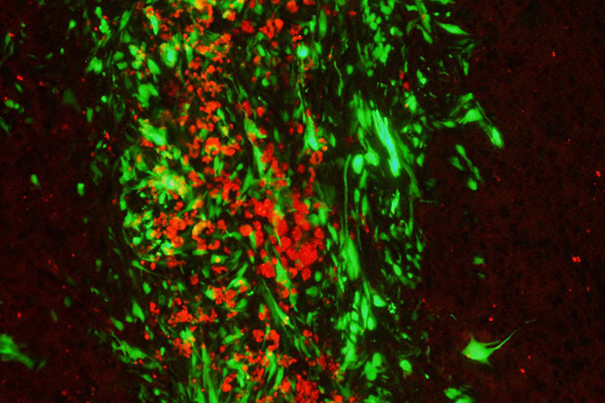
-
Satisfaction with Medicaid expansion
Enrollees in Medicaid reported in a nationwide survey that they’re largely satisfied with the health care they receive under the program, according to researchers at Harvard T.H. Chan School of Public Health.

-
Whole brain imaging
New research led by Professor Jeff Lichtman opens a path to deeper insight on brain action behind certain behaviors.
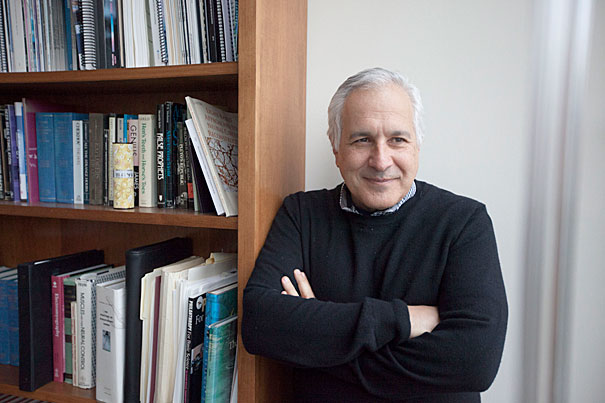
-
On Thoreau’s 200th birthday, a gift for botany
Marking Thoreau’s 200th birthday, Harvard University Herbaria will post images of more than 800 plants the author and naturalist collected, part of a larger digitization effort.
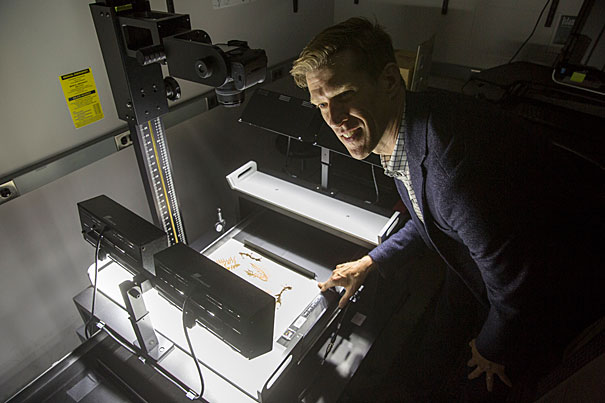
-
Probing protein diversity
A team of researchers has found that the stability plays a key role in the evolution of different protein structures.
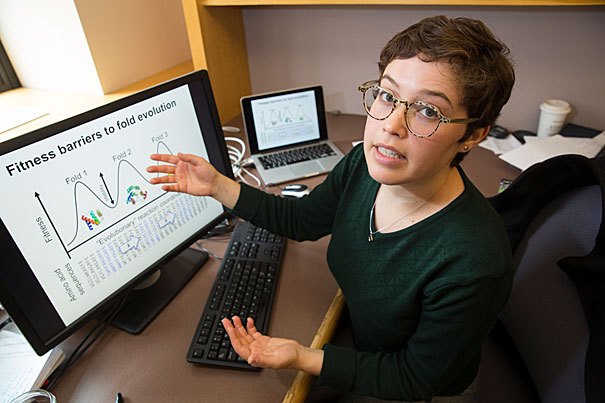
-
Rising threat: Death by fentanyl
Sarah Wakeman, an addiction specialist at Massachusetts General Hospital, discusses the role of fentanyl in the country’s opioid crisis.
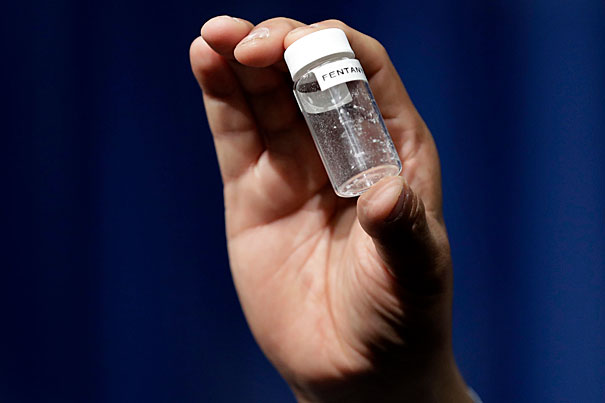
-
RNA errors linked to ALS and dementia
A new Harvard Medical School study shows how malfunctioning RNA may lead to ALS and a form of dementia.
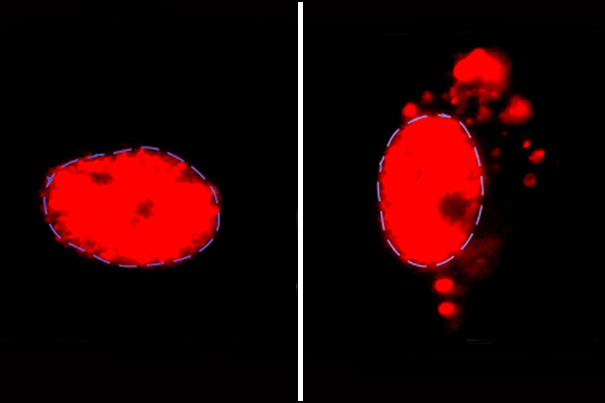
-
Tackling childhood obesity with a text message
Two interventions that link clinical care with community resources helped improve key health measures in overweight or obese children at the outset of a study, as reported in JAMA Pediatrics.

-
Nudging families away from fruit juice
Harvard-affiliated diabetes specialists are calling for fruit juice to be cut from the federal WIC supplemental nutrition program for low-income families.
